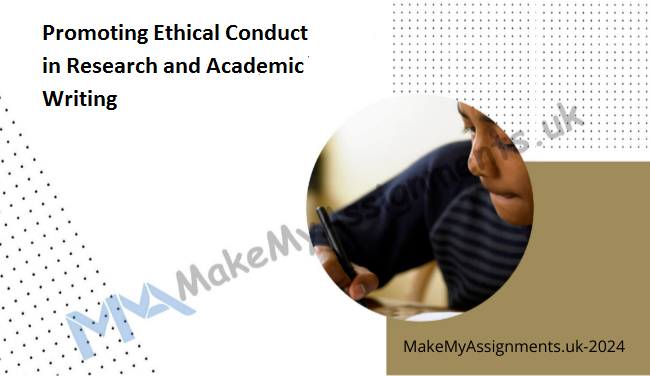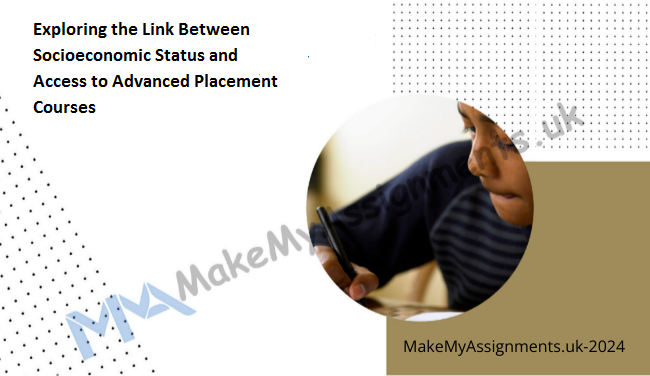In the dynamic landscape of business education, traditional classroom lectures are increasingly being complemented, if…

Promoting Ethical Conduct in Research and Academic Writing
In the realm of academia, ethics form the cornerstone of all scholarly endeavors. Whether conducting research or composing academic papers, maintaining ethical standards is crucial for the integrity and credibility of the scholarly community. Ethical conduct ensures that knowledge creation is transparent, reliable, and beneficial to society. In this blog, we’ll delve into the significance of ethical conduct in research and academic writing and explore strategies to promote it effectively.

Understanding Ethical Conduct
Ethical conduct in research and academic writing encompasses a broad spectrum of principles and practices aimed at upholding honesty, integrity, and fairness. Some key aspects include:
- Honesty and Transparency: Researchers and writers must accurately represent their work, including methods, results, and conclusions. Transparency in reporting ensures that others can replicate and verify findings.
- Plagiarism Avoidance: Plagiarism, the act of presenting someone else’s work as your own, is a cardinal sin in academia. Proper citation and acknowledgment of sources are essential to give credit where it’s due and avoid intellectual theft.
- Respect for Participants: When conducting research involving human subjects or animals, ethical guidelines mandate obtaining informed consent, minimizing harm, and ensuring confidentiality. Respecting the dignity and rights of participants is paramount.
- Objectivity and Impartiality: Researchers and writers should strive for objectivity in their work, avoiding bias and undue influence. Presenting a balanced perspective enhances the credibility of research and academic discourse.
- Conflict of Interest Disclosure: Authors should disclose any potential conflicts of interest that could influence their research or writing. Transparency about financial, personal, or professional interests helps maintain trust and credibility.
Promoting Ethical Conduct
Promoting ethical conduct in research and academic writing requires a concerted effort from various stakeholders, including researchers, educators, institutions, and publishers. Here are some strategies to foster a culture of integrity:
- Education and Training: Providing comprehensive training on research ethics and academic integrity is essential for researchers at all levels. Workshops, seminars, and online resources can help familiarize scholars with ethical principles and best practices.
- Clear Guidelines and Policies: Institutions and publishers should establish clear guidelines and policies regarding ethical conduct. These guidelines should cover issues such as plagiarism, authorship, data management, and conflicts of interest.
- Peer Review Process: Peer review plays a crucial role in ensuring the quality and integrity of scholarly work. Rigorous peer review can help identify potential ethical concerns and improve the overall reliability of research findings.
- Ethics Committees: Institutions should have ethics committees or review boards to oversee research involving human subjects or animals. These committees ensure compliance with ethical standards and provide guidance on ethical dilemmas.
- Promotion of Open Science: Embracing principles of open science, such as data sharing, pre-registration of studies, and open access publishing, can enhance transparency and accountability in research.
- Lead by Example: Researchers, educators, and institutional leaders should exemplify ethical conduct in their own work and interactions. Serving as role models reinforces the importance of integrity in academia.
- Encourage Reporting: Institutions should have mechanisms in place for reporting ethical breaches or misconduct. Whistleblower protections and confidential reporting channels empower individuals to raise concerns without fear of retaliation.
MakeMyAssignments.uk can assist students in promoting ethical conduct in research and academic writing:
1. Education and Guidance
MakeMyAssignments.uk offers educational resources and guidance to students on research ethics and academic integrity. Through informative articles, tutorials, and workshops, students can learn about ethical principles, plagiarism avoidance, citation guidelines, and responsible research practices.
2. Plagiarism Detection and Prevention
The platform provides plagiarism detection services to help students ensure the originality of their work. Using advanced plagiarism detection software, MakeMyAssignments.uk helps students identify and correct any instances of unintentional plagiarism, thereby promoting ethical writing practices.
3. Customized Assistance
MakeMyAssignments.uk offers customized assistance to students in completing their assignments ethically. By providing personalized guidance and support, the platform helps students navigate ethical dilemmas, cite sources correctly, and adhere to academic standards while producing high-quality work.
4. Academic Writing Services
MakeMyAssignments.uk offers professional academic writing services to students who need assistance with their assignments. The platform employs experienced writers who adhere to strict ethical guidelines and produce original, well-researched papers tailored to students’ requirements. By availing these services, students can ensure the ethical conduct of their academic work while receiving expert assistance.
5. Compliance with Ethical Standards
MakeMyAssignments.uk ensures compliance with ethical standards in all aspects of its operations. The platform’s writers and staff are trained to uphold principles of honesty, integrity, and respect for academic norms. By maintaining a commitment to ethical conduct, MakeMyAssignments.uk sets a positive example for students and promotes a culture of integrity in academia.
6. Transparent Policies
MakeMyAssignments.uk maintains transparent policies regarding plagiarism, academic integrity, and ethical conduct. Students can access clear guidelines and information about the platform’s ethical standards, ensuring that they understand their responsibilities and expectations when using the service.
7. Encouraging Responsible Research Practices
MakeMyAssignments.uk encourages responsible research practices among students by promoting principles of transparency, objectivity, and respect for intellectual property. Through educational initiatives and support services, the platform empowers students to conduct research ethically and contribute to the advancement of knowledge with integrity.
In summary, MakeMyAssignments.uk plays a vital role in supporting students in promoting ethical conduct in research and academic writing. By providing educational resources, plagiarism detection services, customized assistance, and professional writing services, the platform helps students uphold principles of honesty, integrity, and accountability in their academic endeavors.




This Post Has 0 Comments